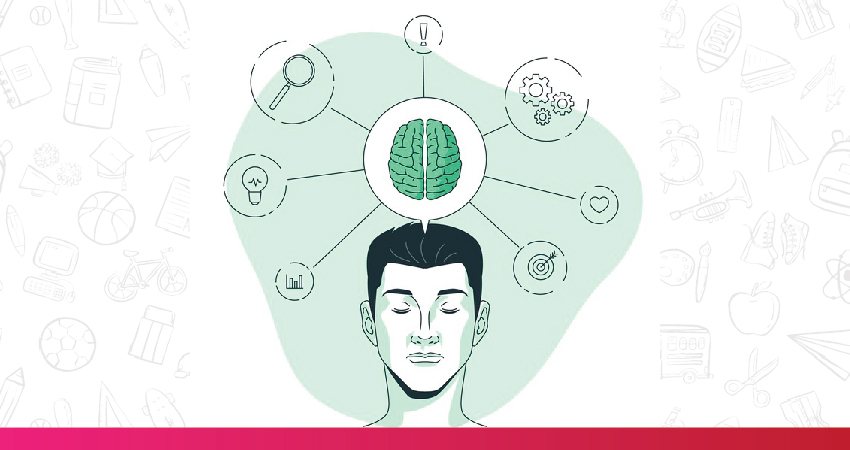How to Raise Mentally Strong Children?
By orchidadmin |
Date 09-08-2024

Admissions Open for
Introduction
Since our emergence thousands of years ago, mental health hasn’t been this low in humanity. Suppose you pick a person from one hundred years ago and compare him/her with a modern human. In that case, the chances are that the person from the bygone era would possess remarkable psychological resilience than us. We had people like Vasco da Gama and Alexander the Great, who hadn’t just voyaged into the world that was unknown to them but also conquered it. But we, with all our Google maps and shiny modern navigation, wouldn’t stray into the relatively well-charted terrains. This is simply one example of how our mental endurance has deteriorated over the years.
The advent of technology, though benefited us in every way of life, has also numbed us, made us lethargic, and take things for granted which our forefathers would have considered witchcraft. Unfortunately, kids of this generation are further deprived of human interactions and social skills. They don’t play tag as much as we did at the same age. PUBG and other videogames keep them busy. Keep them devoid of what we called fun. Though they have numerous buddied they play with online, most don’t have real friends.
This is where mental strength comes into play. When we interact with other people, we learn. We get hurt, we get happy. We get a life. As human interactions decrease, the opportunities to gain perspective also fades away. This makes kids petulant and weak.
Apart from technology, other things plague kids’ mental health, too. Namely, too much homework, social anxiety. There are so many ways your child can develop adolescent depression as well. So how do you, as a responsible parent, raise an emotionally resilient child?
Tips for raising mentally strong kids
- Self-control: Teach them to control their emotions. As previously mentioned, the lack of human interactions creates a lack of perspective. When the ability to empathize lags, the child might become adamant and hence aggressive. So whenever a child acts uncontrollably, instead of yelling, try to reason with him/her. Show them that just because they screech and cry doesn’t mean they are right. That expressing anger or dissatisfaction in a primitive way will get them nowhere. When you sit with your child and teach him/her how to control their emotions, half of the problems will be resolved.

- Anger: Not all problems sprout from the child. More often than not, parents become the reason for their kids’ weak minds. A kid does something wrong, reprimanding with harsh words or punishments will make him/her fearful, maybe even destroy their tendency to be curious or experiment on stuff. Any mistakes can be disapproved of in a positive manner. Merely knowing that loud words will have a profound impact on your child’s psyche is enough for most parents to refrain from doing that.
- Passive aggression: Similar to the point above, you should also avoid being condescending. Emotions are integral parts of the human experience. While it is your duty to make your child practice controlling their emotions, you must also not try to completely snuff it out. If a child expresses sadness, even for trivial things, do not undermine their feelings by saying, “It doesn’t matter” or “it’s not a big deal.” This dismissive nature will seep into the child’s mind, and eventually, they will stop expressing their feelings or never feel anything altogether.
- Discipline: Practicing order and self-control often play as a rudimentary element of a healthy mind. Even something as simple as making their own bed or watering a plant every day gives them a sense of being systematic. It helps them to nurture an enduring mind.
- Reflection: No one talks to us as much we do to ourselves. This is popularly referred to as “thoughts.” Show your child the importance of cultivating positive thoughts. The more a child contemplates good things, the healthier their brain becomes. Though any negative situation can indeed be taken in a positive light, for children, it is not always the case as they lack the life experience and wisdom to do so. Hence, as a parent, you must make sure your child is provided with a positive environment so that he/she can learn to think only positive things.
What not to do
Now that we have seen some of the fundamental constituents of robust mental health, it is time to know what NOT to do.

- Caving: Never give in to peevish behavior. If your child is impatient or bad-tempered when denied something, then let them pout. The moment you reward such negative ways is when your child learns that he/she can have his/her way if they scream enough.
- Intemperance: Refrain from drowning your kids with goodies. Most times, the lack of things that we need teaches us to appreciate those things when we get them. This gratefulness is considered a part of vital mental health, and not giving them a chance to long for something makes them unappreciative.
- Perfection: Don’t expect your child to be perfect. Not just in studies, but even in something as little as household chores. When a child does something, with all his/her heart, show appreciation. If mistakes are made, then teach them to rectify them without blaming them.
- Responsibility: One of the worst moments in life is not when we make a bad choice, but when we reap its consequences. But it gives us valuable life lessons that we call experience. So don’t prevent your child from the bad that comes when they make a bad call. Suffering, however little, will teach them to have good judgment.
- Problems: Don’t let your child have negative thoughts. Unfavorable scenarios are unavoidable parts of life, and we have no control over them. But our perspective towards it is entirely up to us. So the next time you see your child wallow, be it over a broken toy or monumental homework, teach them to see the positive in it.
Conclusion
The above ten points are in no way the exclusive cardinal rules for mental health. But it should provide a good start and a general idea of how to raise mentally strong kids. And in this era of self-indulgence and abundance, teaching your child to develop a strong mind takes precedence over every other thing.
Also read..
10 Best Extracurricular Activities for Kids
The Top 10 Dual-Language Books for Children.
10 ways to manage preschoolers at home during online classes.
CBSE Schools In Popular Cities
- CBSE Schools in Bangalore
- CBSE Schools in Mumbai
- CBSE Schools in Pune
- CBSE Schools in Hyderabad
- CBSE Schools in Chennai
- CBSE Schools in Gurgaon
- CBSE Schools in Kolkata
- CBSE Schools in Indore
- CBSE Schools in Sonipat
- CBSE Schools in Delhi
- CBSE Schools in Rohtak
- CBSE Schools in Bhopal
- CBSE Schools in Aurangabad
- CBSE Schools in Jabalpur
- CBSE Schools in Jaipur
- CBSE Schools in Jodhpur
- CBSE Schools in Nagpur
- CBSE Schools in Ahmednagar
- CBSE School In Tumkur

Call Us to know more about Orchids
Swipe Up

.jpg&w=1920&q=80)














